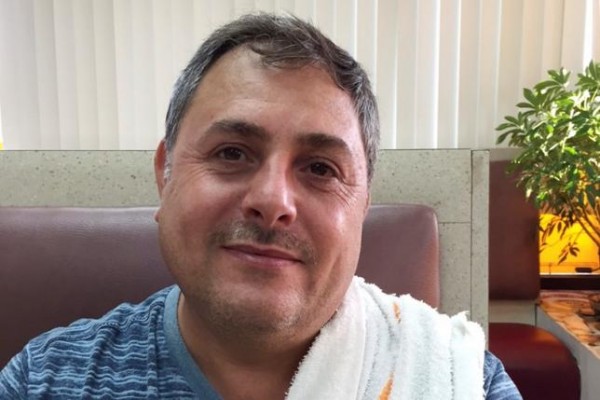Akeel Asady, the usually cheerful part-owner of Iraqi Kabob restaurant, lifted a kitchen towel draped over his left 
Asady was once a refugee who fled Saddam Hussein’s government in Iraq in the early 1990s and lived in a tent in Saudi Arabia’s desert for more than two years before a Christian agency brought him to the United States.
He said the powerful image of the drowned toddler helped spark awareness of the plight of Syrian refugees around most of the world. For Arab-Americans who sit at the six booths of Iraqi Kabob in Dearborn, Michigan, lively discussions about violence in the Middle East and the refugees it creates are always taking place, he said.
“We follow the political situation day to day,” Asady said on Monday, speaking eloquent English developed over 22 years in the country. “We live with the politics. The rest of the world woke up when that 3-year-old boy drowned.”
Asady, 47, is a partner in the restaurant on Warren Avenue, a busy four-lane street lined on both sides with Middle Eastern restaurants, bakeries, supermarkets, meat shops and more. It is the community’s commercial heart in Dearborn, a car manufacturing city that is home to one of the highest concentrations of people from the Middle East in America.
One of the cooks at Iraqi Kabob is Omar Dosha, 38, who along with his wife and four children moved to the United States four years ago, after spending three years in the Syrian capital, Damascus, before the uprising and violent response from the government of Bashar al-Assad.
Dosha said his new home country should increase the number of Syrian refugees it takes in.
“We look for a safe place to live because our home is not safe,” Dosha said in Arabic, translated by Asady. “That is all we are looking for. We lost our places in our own country. I love the United States. It has enough room and enough opportunity to bring in more of the refugees who are only looking for a peaceful place to live.”
POLITICAL OBSTACLES
Since the start of the Syrian war in 2011, Washington has accepted 1,500 Syrian refugees, most of them this year, a tiny number against the backdrop of the European refugee crisis in which Germany is preparing for 800,000 asylum seekers this year. There are some 4 million Syrian refugees.
But political realities in Washington could work against efforts to increase the numbers accepted by the United States. Some congressional Republicans have said allowing in Syrian refugees would constitute a pipeline for terrorists.
Interviews with 10 U.S. citizens and residents of Middle Eastern descent, all who were adults when they left their home countries, showed unanimity that the United States should take on more Syrian refugees. They were interviewed at Iraqi and Syrian restaurants in Dearborn and at a Yemenese restaurant in Hamtramck, which like Dearborn is near Detroit.
Without exception, the 10 men – no women agreed to be interviewed – said the United States should work hard to make sure that none of the newcomers is a violent militant.
U.S. authorities said last week they had a “significant vetting process” for people from Syria and wanted to prevent militants from Islamic State or al Qaeda from slipping into the country as refugees.
“The U.S. should help people who are in need, but only people who will not make trouble and will contribute in a positive way,” said Chamo Barakat, the 46-year-old owner of Syrian restaurant Al Chabab on Warren Avenue.
Barakat has been in the United States for a decade and is hoping his brothers now living in Turkey can join him. Both of his brothers’ houses in Aleppo, Syria’s largest city, were destroyed by Islamic State, he said.
REUTERS

Leave a Reply
You must be logged in to post a comment.